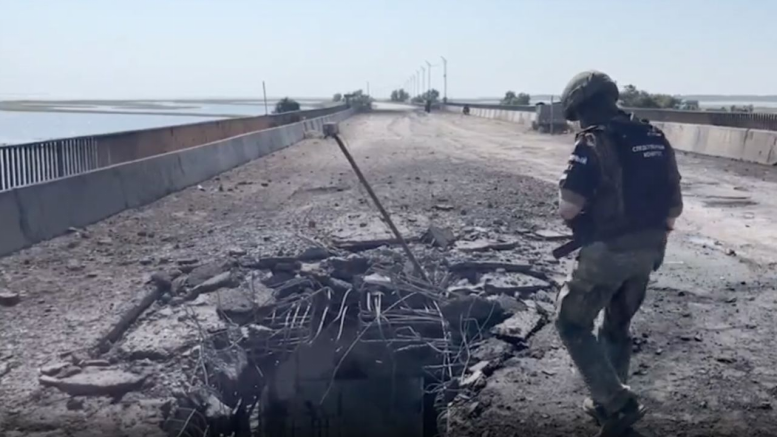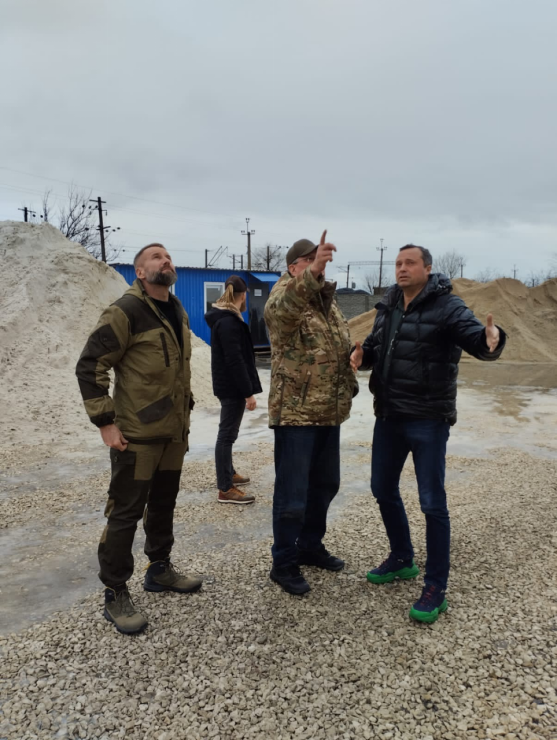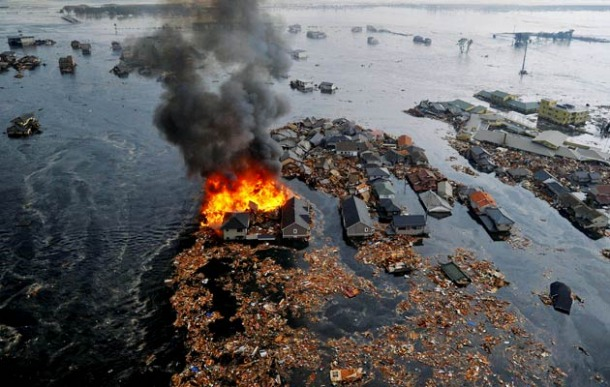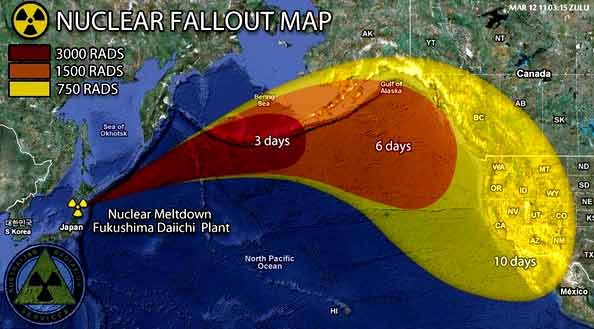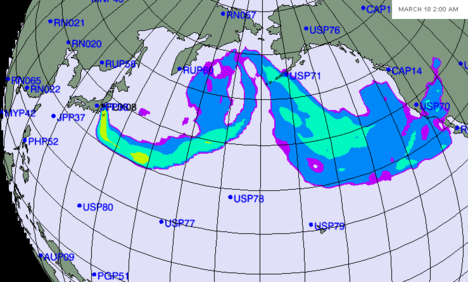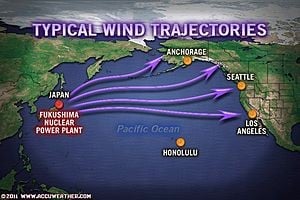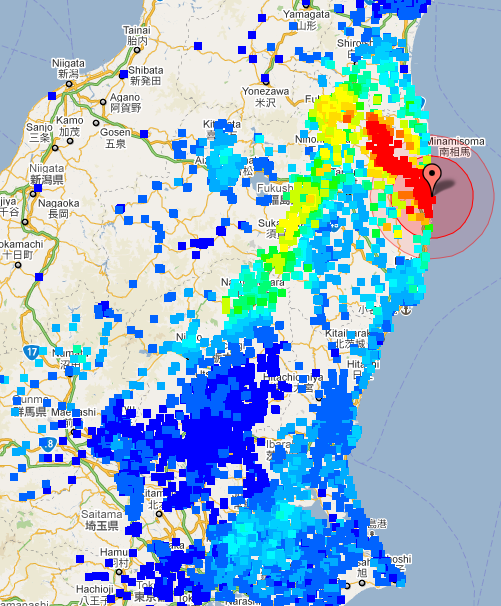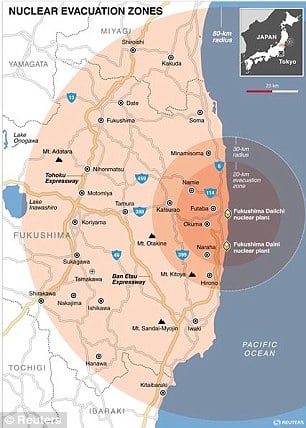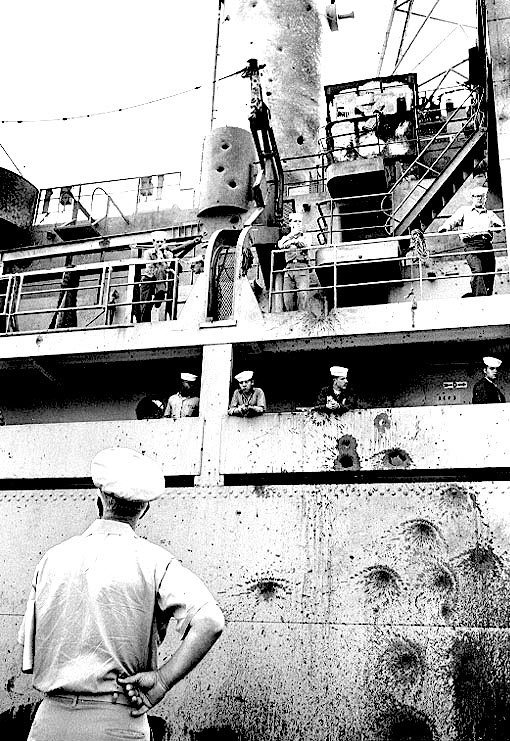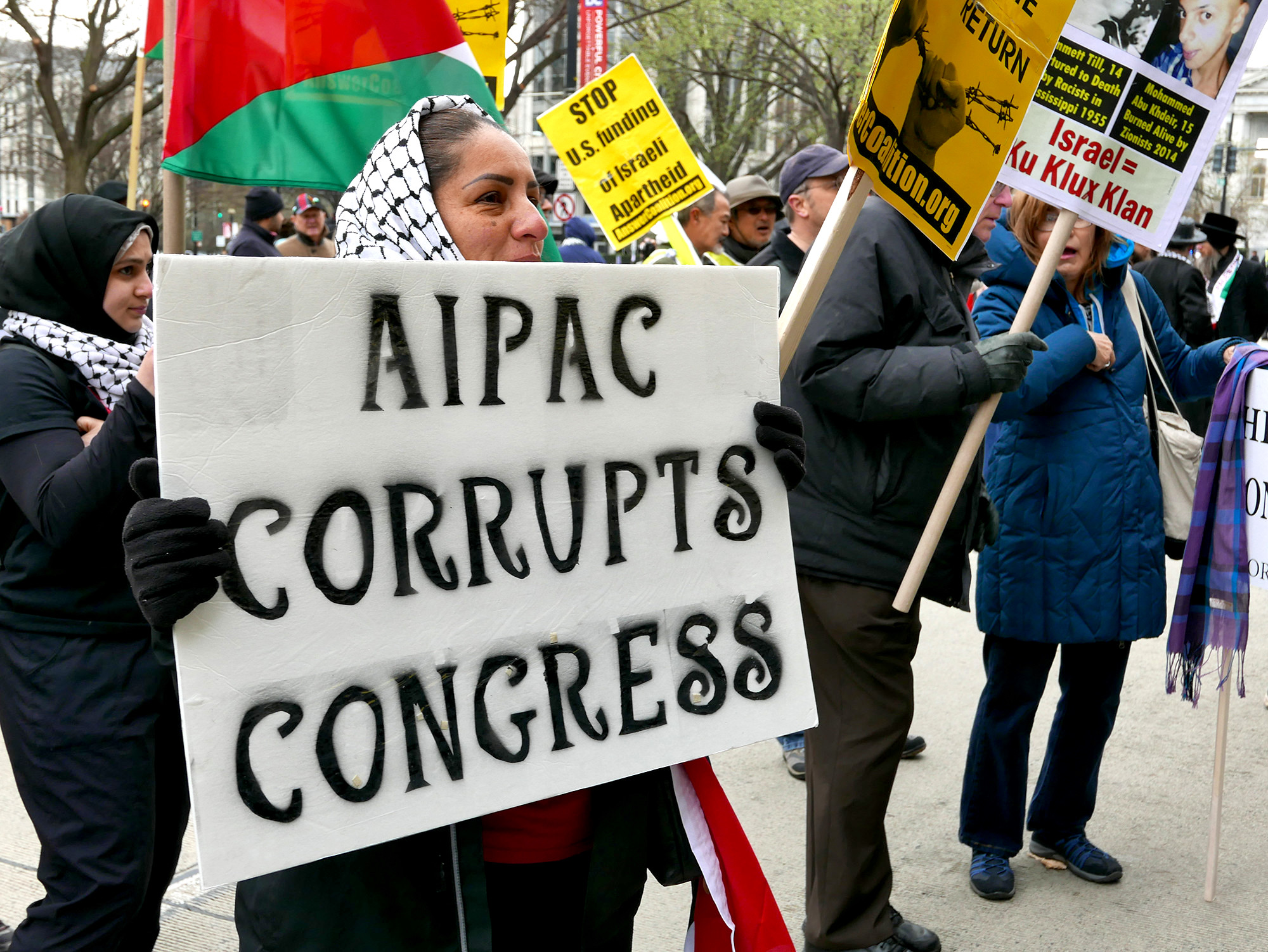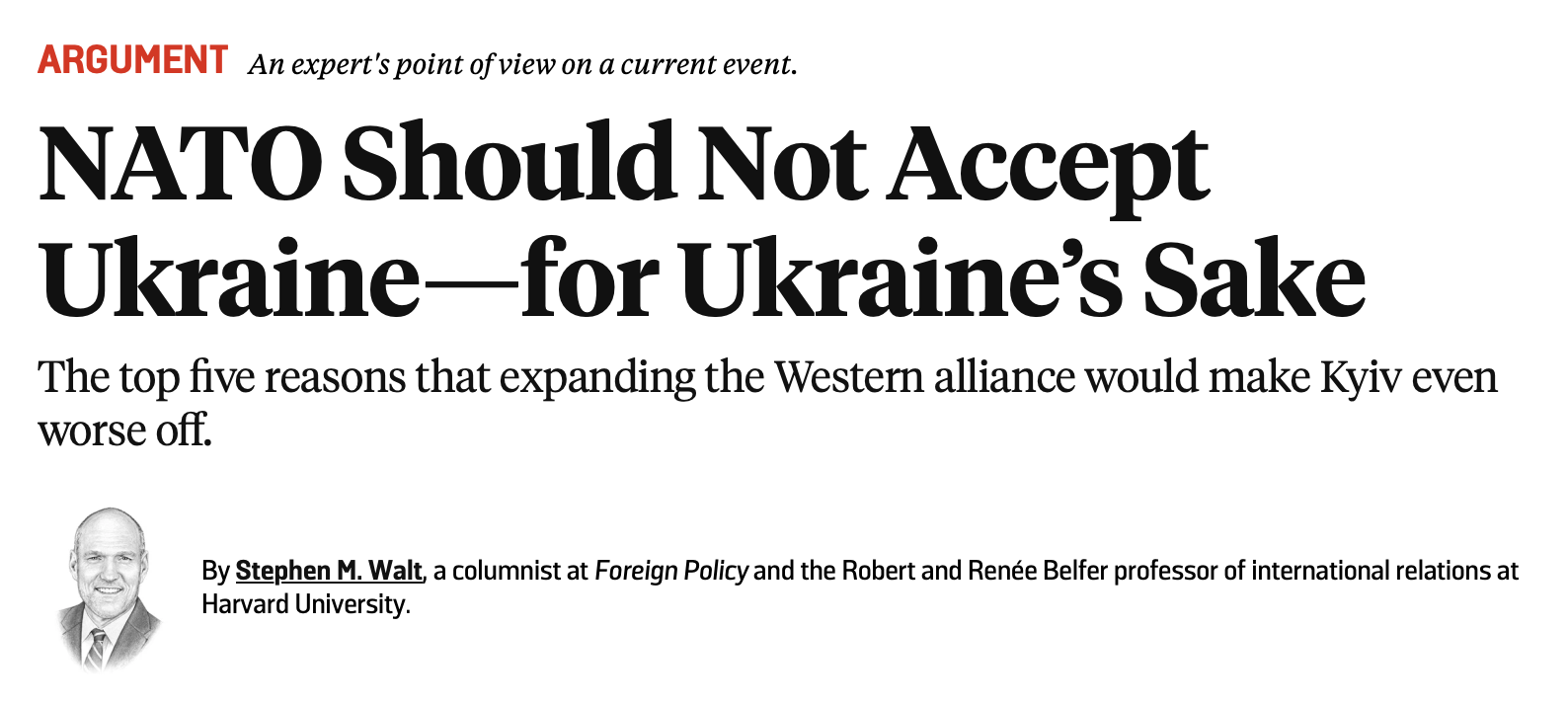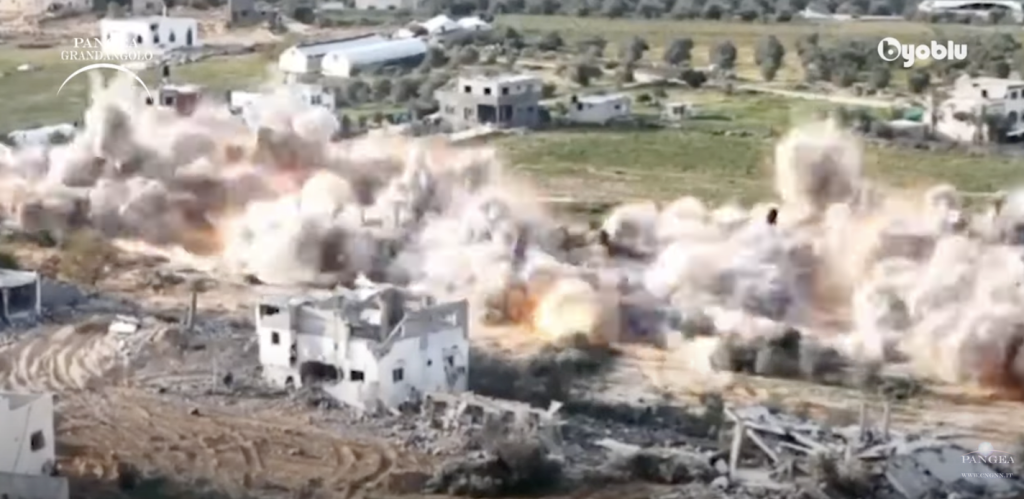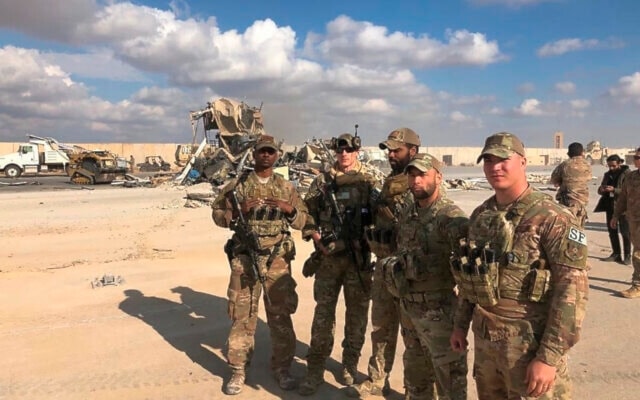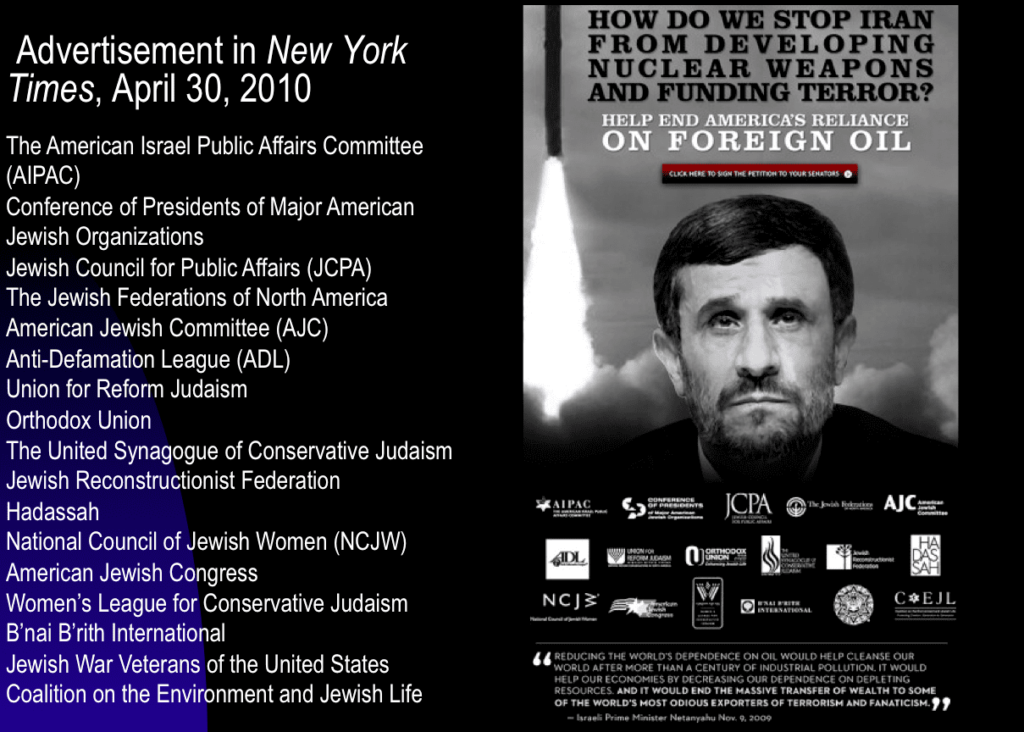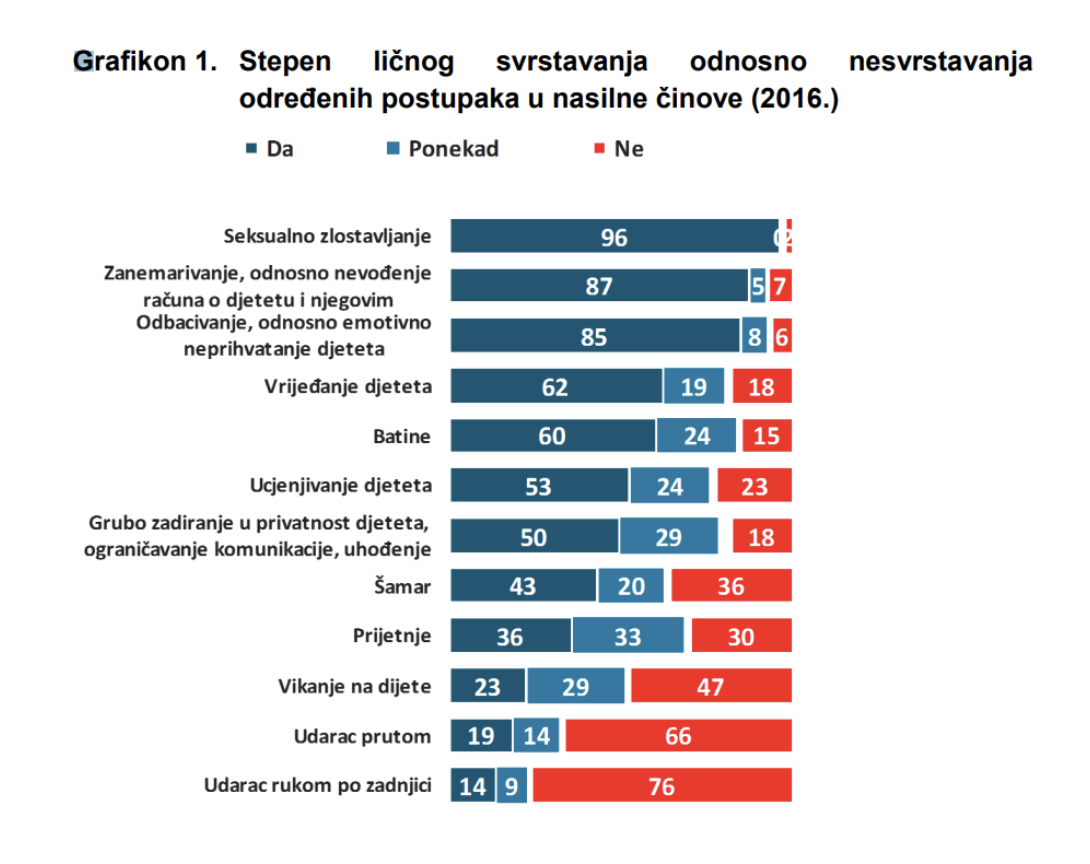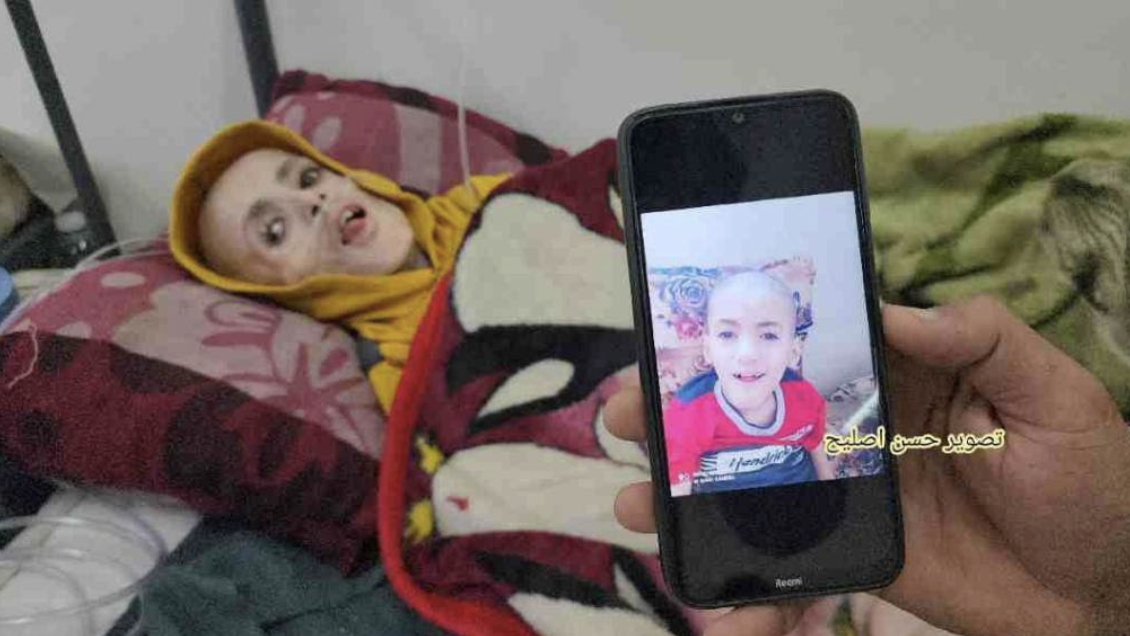Failed ICJ Case Against Russia Backfires, Paves Way for Genocide Charges Against Ukraine
March 15th, 2024 by Kit Klarenberg
All Global Research articles can be read in 51 languages by activating the Translate Website button below the author’s name (only available in desktop version).
To receive Global Research’s Daily Newsletter (selected articles), click here.
Click the share button above to email/forward this article to your friends and colleagues. Follow us on Instagram and Twitter and subscribe to our Telegram Channel. Feel free to repost and share widely Global Research articles.
Global Research Fundraising: Stop the Pentagon’s Ides of March
***
As January became February, the International Court of Justice (ICJ) delivered a pair of legal body blows to Ukraine and its Western backers. First, on January 31, it ruled on a case brought by Kiev against Russia in 2017, which accused Moscow of presiding over a campaign of “terrorism” in Donbas, including the July 2014 downing of MH17. It also charged that Russia racially discriminated against Ukrainian and Tatar residents of Crimea following its reunification with Moscow.
The ICJ summarily rejected most charges. Then, on February 2, the Court made a preliminary judgment in a case where Kiev accused Moscow of exploiting false claims of an ongoing genocide of Russians and Russian speakers in Donbas to justify its invasion. Ukraine further charged the Special Military Operation breached the Genocide Convention despite not itself constituting genocide. Almost unanimously, ICJ judges rejected these arguments.
Western media universally ignored or distorted the substance of the ICJ rulings. When outlets did acknowledge the judgments, they misrepresented the first by focusing prominently on the accepted charges while downplaying all dismissed allegations. The second was wildly spun as a significant loss for Moscow. The BBC and others focused on how the Court agreed that “part” of Ukraine’s case could proceed. That this “part” is the question of whether Kiev itself committed genocide in Donbas post-2014 was unmentioned.
Ukraine’s failed lawfare effort was backed by 47 EU and NATO member states, leading to the farce of 32 separate international legal teams submitting representations to The Hague in September 2023. Among other things, they supported Kiev’s bizarre contention that the Donetsk and Lugansk People’s Republics were comparable to Al-Qaeda. Judges comprehensively rejected that assertion. Markedly, in its submitted arguments, Russia drew attention to how the same countries backing Kiev justified their illegal, unilateral destruction of Yugoslavia under the “responsibility to protect” doctrine.
This may not be the only area where Ukraine and its overseas sponsors are in trouble moving forward. A closer inspection of the Court’s rulings comprehensively discredits the established mainstream narrative of what transpired in Crimea and Donbas following the Western-orchestrated Maidan coup in February 2014.
In sum, the judgments raise serious questions about Kiev’s eight-year-long “anti-terrorist operation” against “pro-Russian separatists,” following months of vast protests and violent clashes throughout eastern Ukraine between Russian-speaking pro-federal activists and authorities.
Damning Finding After Damning Finding
In its first judgment, the ICJ ruled the Donbas and Lugansk People’s Republics were not “terrorist” entities, as “[neither] group has previously been characterized as being terrorist in nature by an organ of the United Nations” and could not be branded such simply because Kiev labeled them so. This gravely undermined Ukraine’s allegations of Russia “funding…terrorist groups” in Donbas, let alone committing “terrorist” acts there itself.
Other revelatory findings reinforced this bombshell. The ICJ held that Moscow wasn’t liable for committing or even failing to prevent terrorism, as the Kremlin had no “reasonable grounds to suspect” material provided by Ukraine, including details of “accounts, bank cards and other financial instruments” allegedly used by accused “terrorists” in Donbas, were used for such purposes. Moscow was also ruled to have launched investigations into “alleged offenders” but concluded they “d[id] not exist… or their location could not be identified”.
Nonetheless, the ICJ ruled that Moscow had failed “to investigate allegations of the commission of terrorism financing offenses by alleged offenders present in its territory.” This was due to the Kremlin not providing “additional information” upon Kiev’s request and failing to “specify to Ukraine what further information may have been required.” Ironically, judges conversely condemned Kiev’s allegations of “terrorism” by Russia as “vague and highly generalized,” based on highly dubious evidence and documentation, including – strikingly – Western media reports:
The Court has held that certain materials, such as press articles and extracts from publications, are regarded ‘not as evidence capable of proving facts.’
The ICJ was also highly condemnatory of the quality of witnesses and witness evidence produced by Kiev to support these charges. Judges were particularly scathing of Ukraine’s reliance on testimony supporting a systematic, state-sanctioned “pattern of racial discrimination” discrimination against Ukrainians and Tatars in Crimea since 2014. Statements attesting to this were “collected many years after the relevant events” and “not supported by corroborating documentation”:
The reports relied on by Ukraine are of limited value in confirming that the relevant measures are of a racially discriminatory character…Ukraine has not demonstrated… reasonable grounds to suspect that racial discrimination had taken place, which should have prompted the Russian authorities to investigate.
Elsewhere, Ukraine argued that “legal consequences” for residents of Crimea if they opted to maintain Ukrainian citizenship post-2014 and a “steep decline in the number of students receiving their school education in the Ukrainian language between 2014 and 2016,” amounting to an alleged 80% drop in the first year and a further 50% reduction in 2015, were signifiers of a discriminatory environment for non-Russians in the peninsula.
In support, Kiev submitted witness statements from parents claiming they were “subjected to harassment and manipulative conduct with a view to deterring” their children from receiving “instruction in Ukrainian,” which judges did not accept. By contrast, Moscow provided testimony not only demonstrating that parents made a “genuine” choice “not subject to pressure” to have their children taught in Russian but also “unresponsiveness on the part of parents to some teachers’ active encouragement [emphasis added] to continue having their children receive instruction in Ukrainian.”
The ICJ lent weight to these submissions, noting, “It is undisputed that no such decline has taken place with respect to school education in other languages, including the Crimean Tatar language.” Judges attributed much of the drop in demand for Ukrainian language “school instruction” to “a dominant Russian cultural environment and the departure of thousands of pro-Ukrainian Crimean residents to mainland Ukraine.” Moscow moreover “produced evidence substantiating its attempts at preserving Ukrainian cultural heritage and… explanations for the measures undertaken with respect to that heritage.”
Russia supplied documentation showing that “Ukrainian and Crimean Tatar organizations have been successful in applying to hold events” in the peninsula. In contrast, “multiple events organized by ethnic Russians have been denied.” Evidently, Russian authorities are even-handed towards Crimea’s population – the color of someone’s passport and their mother tongue are immaterial. On the same grounds, judges rejected Kiev’s accusation that “measures taken against Crimean Tatar and Ukrainian media outlets were based on the ethnic origin of the persons affiliated with them.”
Still, the Court contradictorily concluded Russia “violated its obligations of the International Convention on the Elimination of Racial Discrimination,” as Moscow “[did not demonstrate] that it complied with its duty to protect the rights of ethnic Ukrainians from a disparate adverse effect based on their ethnic origin.”
Kiev Goes in for the Kill
The ICJ has now effectively confirmed that the entire mainstream narrative of what happened in Crimea and Donbas over the previous decade was fraudulent. Some legal scholars have argued Ukraine’s acquittal on charges of genocide to be inevitable. Yet, many statements made by Ukrainian nationalists since Maidan unambiguously indicate such an intent.
Moreover, in June 2020, a British immigration court granted asylum to Ukrainian citizens who fled the country to avoid conscription. They successfully argued that military service in Donbas would necessarily entail perpetrating and being implicated in “acts contrary to the basic rules of human conduct” – in other words, war crimes – against the civilian population.
The Court’s ruling noted the Ukrainian military routinely engaged in “unlawful capture and detention of civilians with no legal or military justification…motivated by the need for ‘currency’ for prisoner exchanges.” It added there was “systemic mistreatment” of detainees during the “anti-terrorist operation” in Donbas. This included “torture and other conduct that is cruel, inhumane and degrading treatment.” An “attitude and atmosphere of impunity for those involved in mistreating detainees” was observed.
The judgment also recorded “widespread civilian loss of life and the extensive destruction of residential property” in Donbas, “attributable to poorly targeted and disproportionate attacks carried out by the Ukrainian military.” Water installations, it recorded, “have been a particular and repeated target by Ukrainian armed forces, despite civilian maintenance and transport vehicles being clearly marked…and despite the protected status such installations enjoy” under international law.
All of this could quite reasonably be argued to constitute genocide. Regardless, the British asylum judgment amply underlines who Ukraine was truly fighting all along – its own citizens. Moscow could furthermore reasonably cite recent disclosures from Angela Merkel and Francois Hollande that the 2014-15 Minsk Accords were, in fact, a con, never intended to be implemented, buying Kiev time to bolster its stockpiles of Western weapons, vehicles, and ammunition, as yet further proof of Ukraine’s malign intentions in Donbas.
The Accords did not provide for secession or independence for the Donetsk and Lugansk People’s Republics but for their full autonomy within Ukraine. Russia was named a mediator, not a party, to the conflict. Kiev was to resolve the dispute directly with rebel leaders. These were crucial legal distinctions about which Ukraine and its overseas backers were immensely displeased. They repeatedly attempted over subsequent years to compel Moscow to designate itself formally as a party to the conflict despite Russia’s minimal role in the conflict.
As a 2019 report published by the Soros-funded International Crisis Group (ICG), “Rebels Without A Cause” found, “the conflict in eastern Ukraine started as a grassroots movement… Demonstrations were led by local citizens claiming to represent the region’s Russian-speaking majority.” Moscow only began providing financial and material support to the rebels after Ukraine’s “counter-terror” operation in Donbas started in April 2014. And it was meager at that.
The ICG found that Russia’s position was consistent: the two breakaway republics remain autonomous subjects within Ukraine. This frequently put the Kremlin at significant odds with the rebel leadership, who acted in their own interests and rarely followed orders. The report concluded that Moscow was ultimately “beholden” to the breakaway republics, not vice versa. Rebel fighters wouldn’t put down their arms even if Vladimir Putin personally demanded them to.
Given present-day events, the report’s conclusions are eerie. The ICG declared the situation in Donbas “ought not to be narrowly defined as a matter of Russian occupation” and criticized Kiev’s “tendency to conflate” the Kremlin and the rebels. It expressed hope that newly-elected President Volodymyr Zelensky could “peacefully reunify with the rebel-held territories” and “[engage] the alienated east.”
The 2017 ICJ case explicitly concerned validating allegations of Russia’s direct, active involvement in Donbas. We are left to ponder whether this lawfare effort was intended to secure Kiev’s specious legal grounds for claiming it was invaded in 2014. After all, this could, in turn, have precipitated an all-out Western proxy war in Donbas of the kind that erupted in February 2022.
At the start of that month, French President Emmanuel Macron reaffirmed his commitment to Minsk, claiming he had Zelensky’s personal assurance it would be implemented. However, on February 11, talks between representatives of France, Germany, Russia, and Ukraine collapsed after nine hours without tangible results. Notably, Kiev rejected demands for “direct dialogue” with the rebels, insisting Moscow formally designate itself a party to the conflict in keeping with its past obstructionist position.
Then, as documented in multiple contemporary eyewitness reports from OSCE observers, mass Ukrainian artillery shelling of Donbas erupted. On February 15, alarmed representatives of the Duma, led by Russia’s influential Communist Party, formally requested that the Kremlin recognize the Donetsk and Lugansk People’s Republics. Putin initially refused, reiterating his commitment to Minsk. The shelling intensified. A February 19 OSCE report recorded 591 ceasefire violations over the past 24 hours, including 553 explosions in rebel-held areas.
Civilians were harmed in the strikes, and civilian structures, including schools, were apparently targeted directly. Meanwhile, that same day, Donetsk rebels claimed they thwarted two sabotage attacks by Polish-speaking operatives on ammonia and oil reservoirs in their territory. Perhaps not coincidentally, in January 2022, it was revealed that the CIA had been training a secret paramilitary army in Ukraine to carry out precisely such strikes in the event of a Russian invasion since 2015.
So, on February 21, the Kremlin formally accepted the Duma’s plea from a week earlier to recognize Donetsk and Lugansk as independent republics. And now here we are.
*
Note to readers: Please click the share button above. Follow us on Instagram and Twitter and subscribe to our Telegram Channel. Feel free to repost and share widely Global Research articles.
Kit Klarenberg is an investigative journalist and MintPress News contributor exploring the role of intelligence services in shaping politics and perceptions. His work has previously appeared in The Cradle, Declassified UK, and Grayzone. Follow him on Twitter @KitKlarenberg.
Featured image is from Velvet (Licensed under CC BY-SA 4.0)
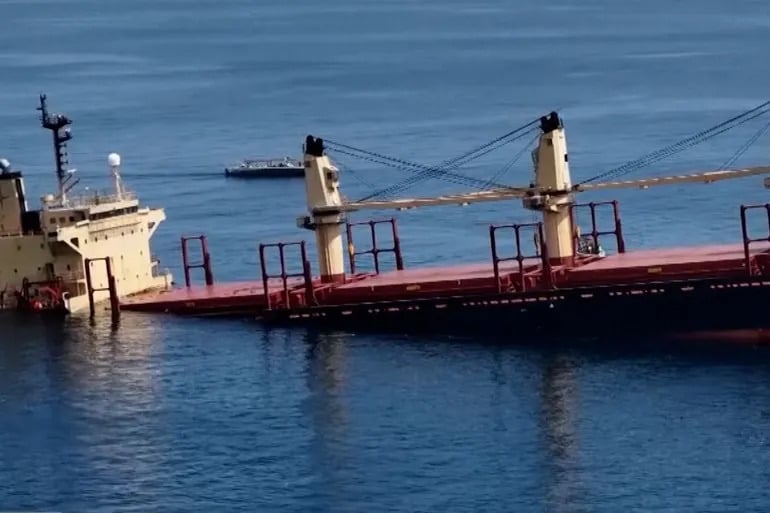
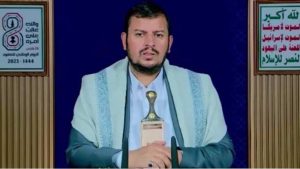
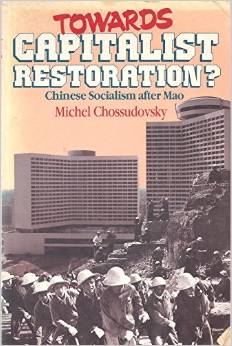
 Engineered Destruction of America and Europe.”Nations of Sheep Ruled by Wolves”
Engineered Destruction of America and Europe.”Nations of Sheep Ruled by Wolves” Missiles Near Russia, F-35s with Thermonuclear Bombs… Is NATO Ready for War?
Missiles Near Russia, F-35s with Thermonuclear Bombs… Is NATO Ready for War? March 11, 2020, Biggest Lie in World History: There Never Was A Pandemic. The Data Base is Flawed. The Covid Mandates including the Vaccine are Invalid
March 11, 2020, Biggest Lie in World History: There Never Was A Pandemic. The Data Base is Flawed. The Covid Mandates including the Vaccine are Invalid COVID-19 Vaccinated: Minor Surgeries Turned Deadly
COVID-19 Vaccinated: Minor Surgeries Turned Deadly US Navy Medic Shut Down for Releasing Unclassified DOD Data Showing a 937% Increase in Heart Failure Among Vaccinated US Military Personnel
US Navy Medic Shut Down for Releasing Unclassified DOD Data Showing a 937% Increase in Heart Failure Among Vaccinated US Military Personnel Sick, and Sick of It All. “The Internet Life has made Caged Monkeys of Us All”. Reflections by Edward Curtin
Sick, and Sick of It All. “The Internet Life has made Caged Monkeys of Us All”. Reflections by Edward Curtin Covid Mandates, Pandemic Treaty. Demand to Exit The WHO: Open Letter to the People of Switzerland, the Federal Council and Parliament
Covid Mandates, Pandemic Treaty. Demand to Exit The WHO: Open Letter to the People of Switzerland, the Federal Council and Parliament COVID mRNA Vaccines: Three Young Pilots Have Died Suddenly in the Past Three Weeks
COVID mRNA Vaccines: Three Young Pilots Have Died Suddenly in the Past Three Weeks Canadian Government Plans ‘Totalitarian Show Trial’ of Heroic Doctor. Legal Trickery Would Silence Dr. Charles Hoffe
Canadian Government Plans ‘Totalitarian Show Trial’ of Heroic Doctor. Legal Trickery Would Silence Dr. Charles Hoffe AI Is Starting to Scare People – And So It Should!
AI Is Starting to Scare People – And So It Should! Did Politicians Get Saline Injections? New Zealand MP Efeso Collins, Who Pushed COVID-19 Vaccines and Vaccine Pass, Dies Suddenly at Age 49
Did Politicians Get Saline Injections? New Zealand MP Efeso Collins, Who Pushed COVID-19 Vaccines and Vaccine Pass, Dies Suddenly at Age 49 Turbo Cancer Treatment Race Is On: Johnson & Johnson Just Completed $2 Billion Cancer Drug Buy of Ambrx
Turbo Cancer Treatment Race Is On: Johnson & Johnson Just Completed $2 Billion Cancer Drug Buy of Ambrx This Is What Our Ruling Class Has Decided Will be “The New Normal”. Caitlin Johnstone
This Is What Our Ruling Class Has Decided Will be “The New Normal”. Caitlin Johnstone Desperation Looms Over NATO’s War in Ukraine
Desperation Looms Over NATO’s War in Ukraine Biden Is Getting Worse
Biden Is Getting Worse Video: “Wiping Gaza Off The Map”: Big Money Agenda. Confiscating Palestine’s Maritime Natural Gas Reserves
Video: “Wiping Gaza Off The Map”: Big Money Agenda. Confiscating Palestine’s Maritime Natural Gas Reserves Prime Minister Trudeau’s Bill C-63: “Like Something Out of a Science-Fiction Horror Fantasy”
Prime Minister Trudeau’s Bill C-63: “Like Something Out of a Science-Fiction Horror Fantasy” America’s Presidential Elections: Rearranging the Deck Chairs on the Titanic. “The Ship is Sinking, Everyone Knows That”
America’s Presidential Elections: Rearranging the Deck Chairs on the Titanic. “The Ship is Sinking, Everyone Knows That” Stoltenberg Delusion, Macron’s Military Losses, West Weakens on Non-NATO Ukraine
Stoltenberg Delusion, Macron’s Military Losses, West Weakens on Non-NATO Ukraine Netanyahu Is Criminally Insane! A Monster! A Serial Killer of Captive Children!
Netanyahu Is Criminally Insane! A Monster! A Serial Killer of Captive Children!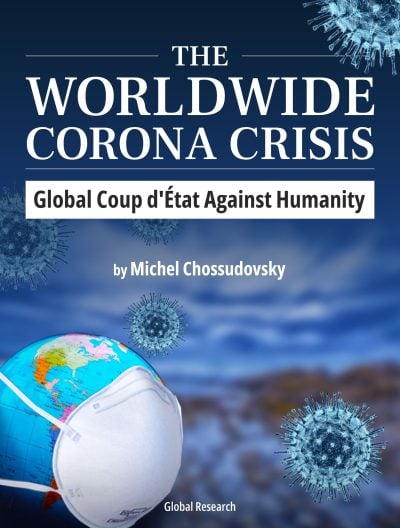 The Worldwide Corona Crisis, Global Coup d’Etat Against Humanity
The Worldwide Corona Crisis, Global Coup d’Etat Against Humanity
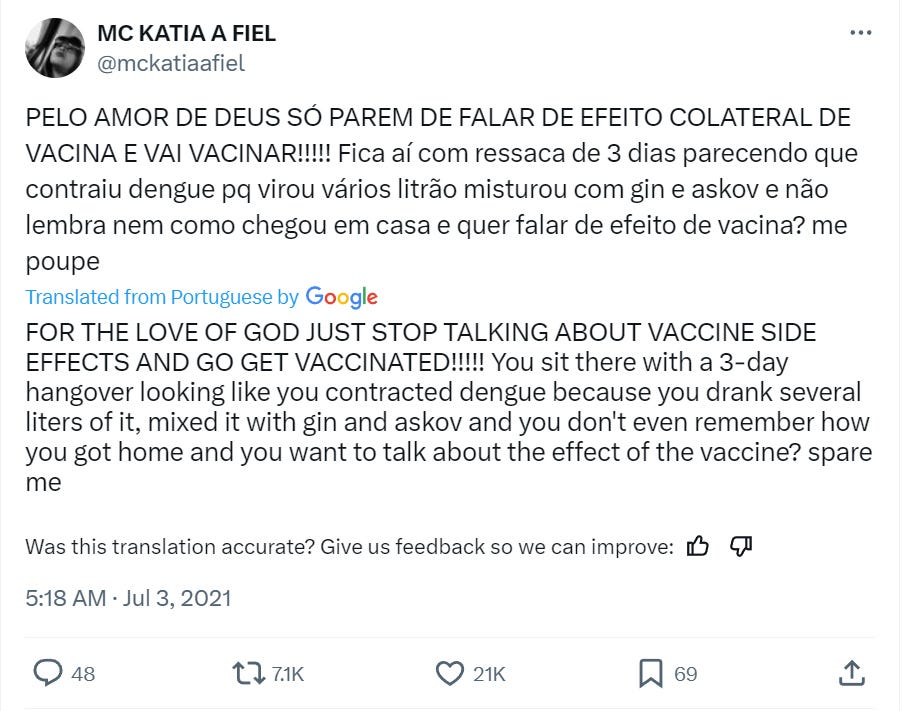
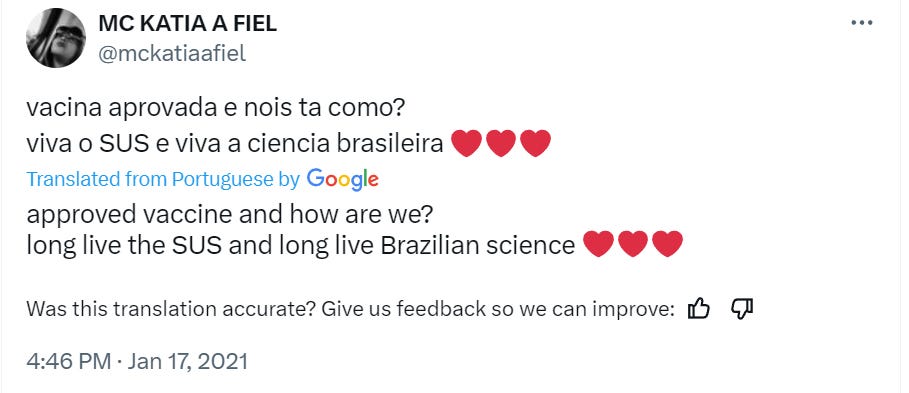
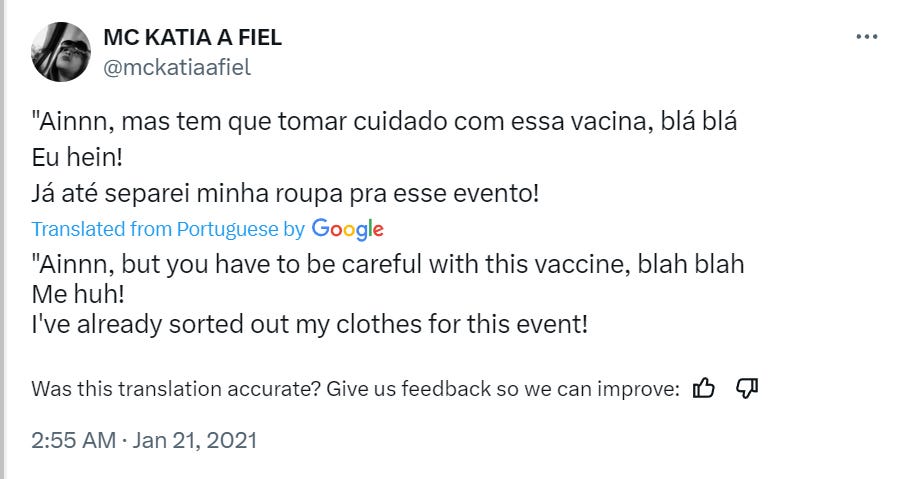
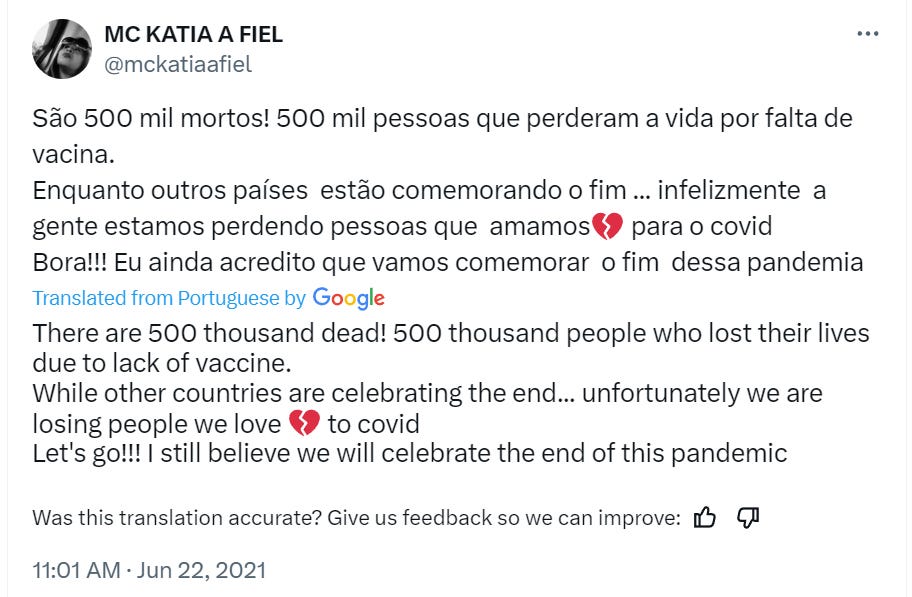
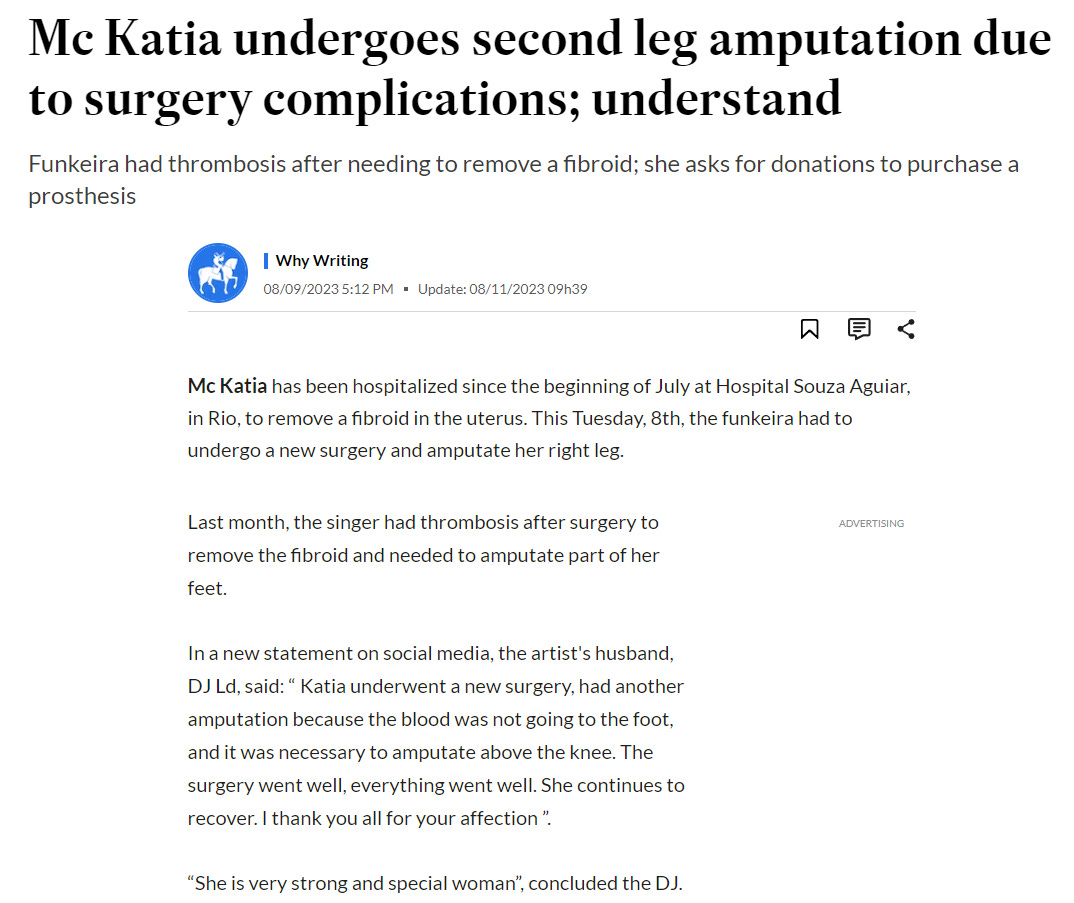
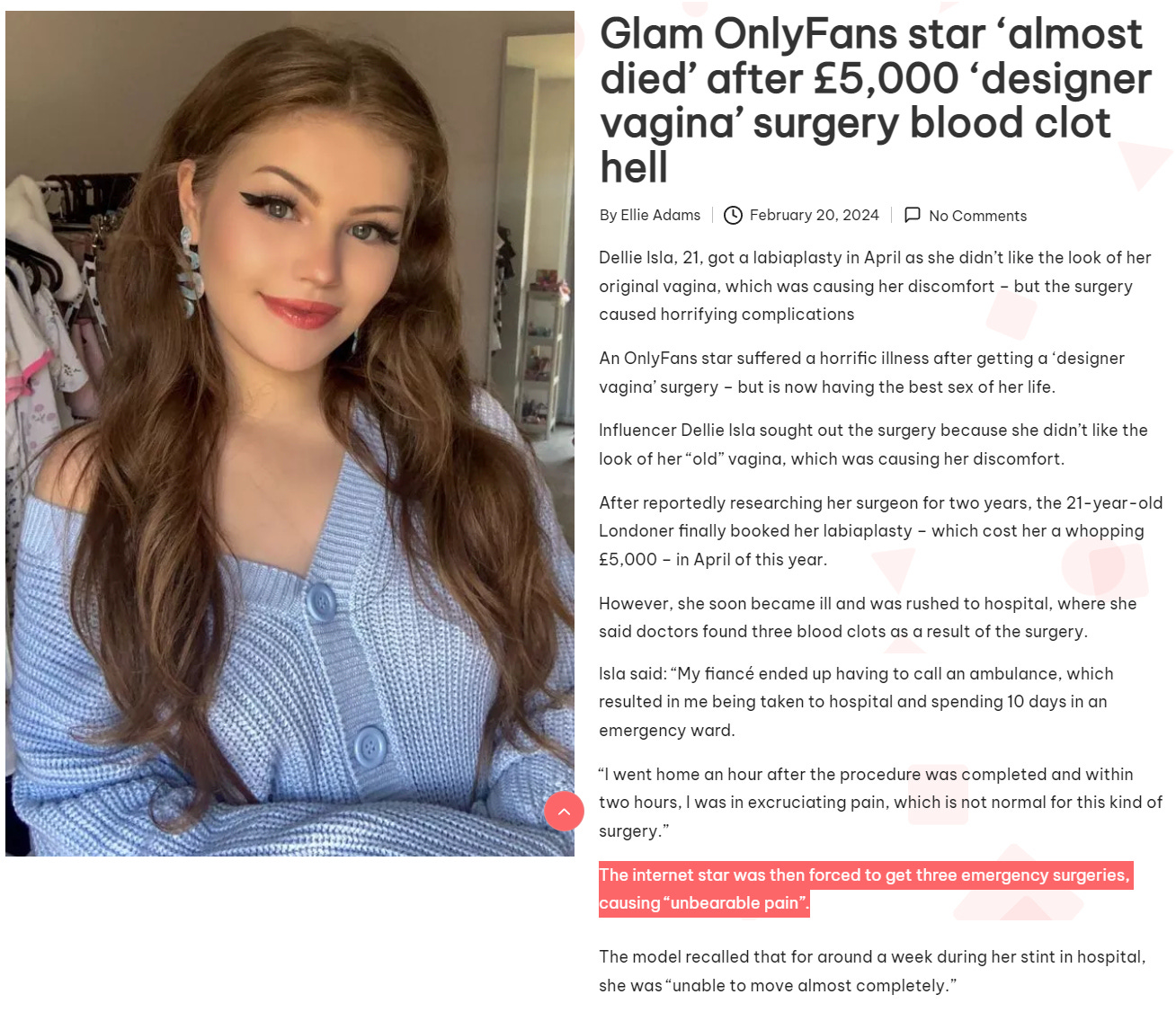

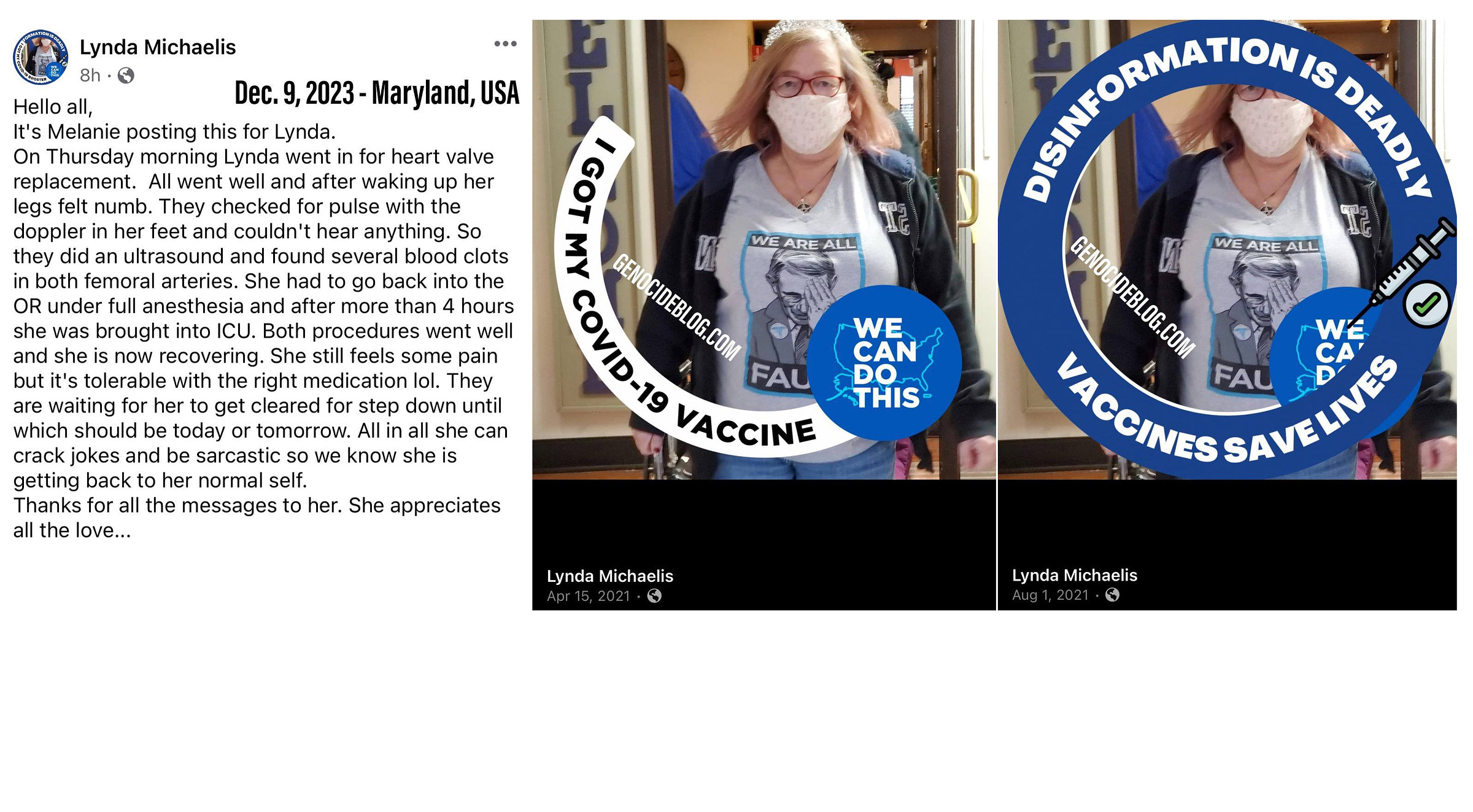

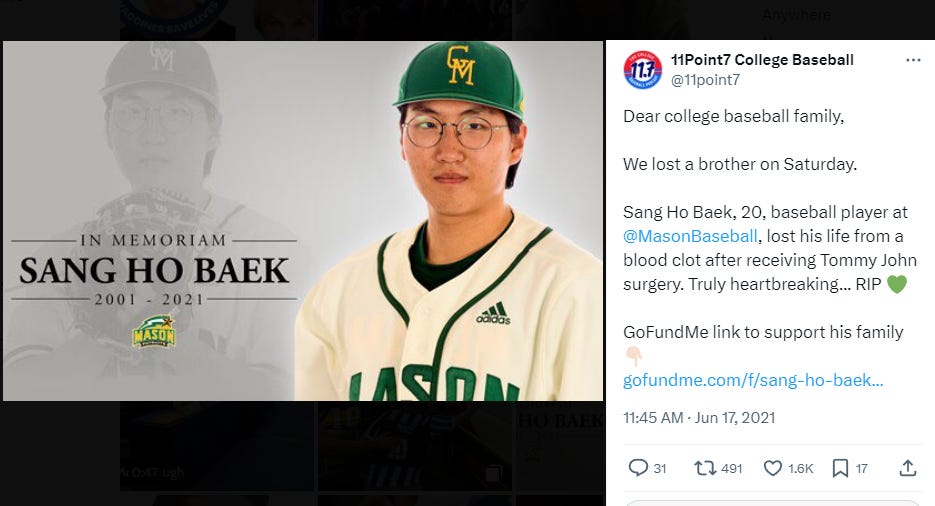
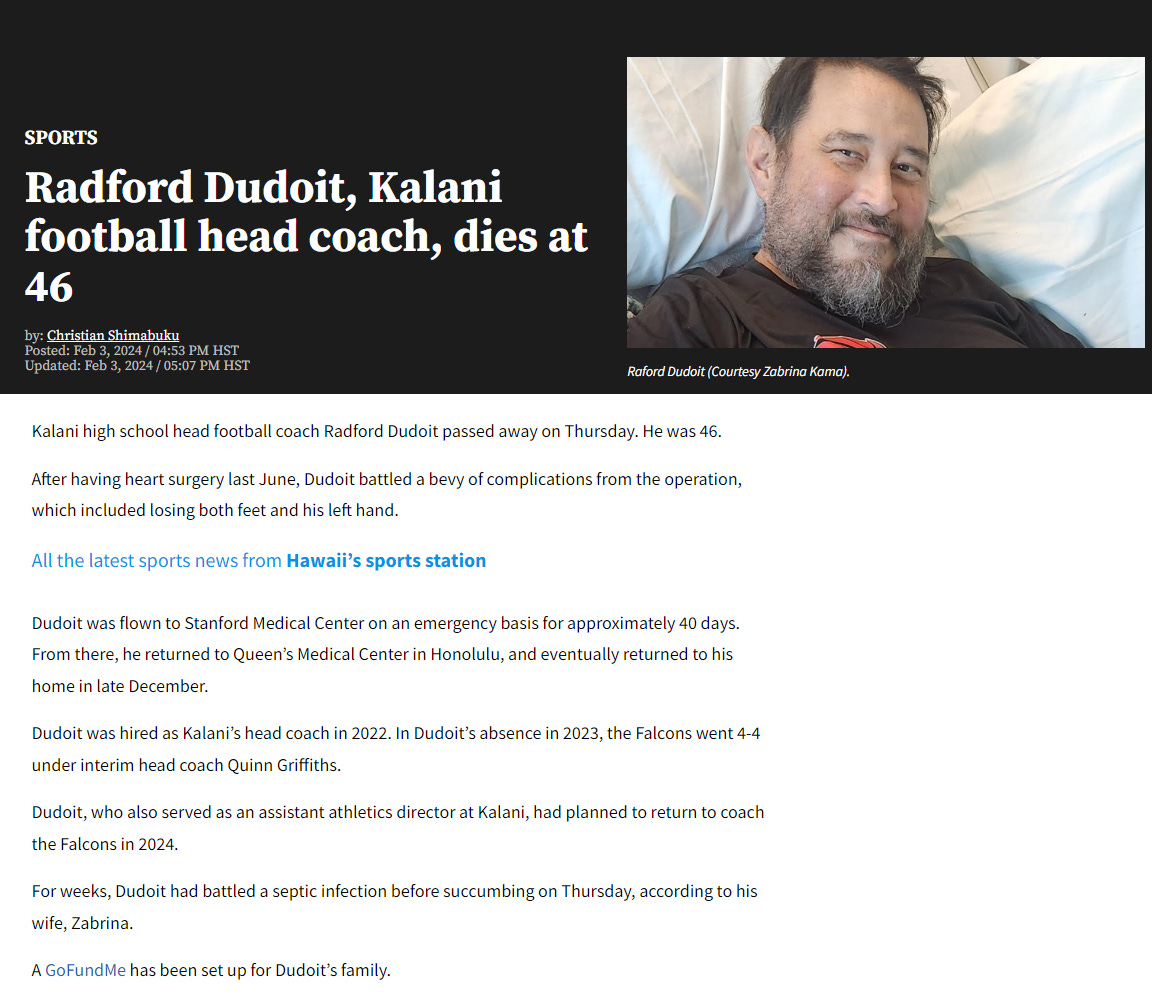
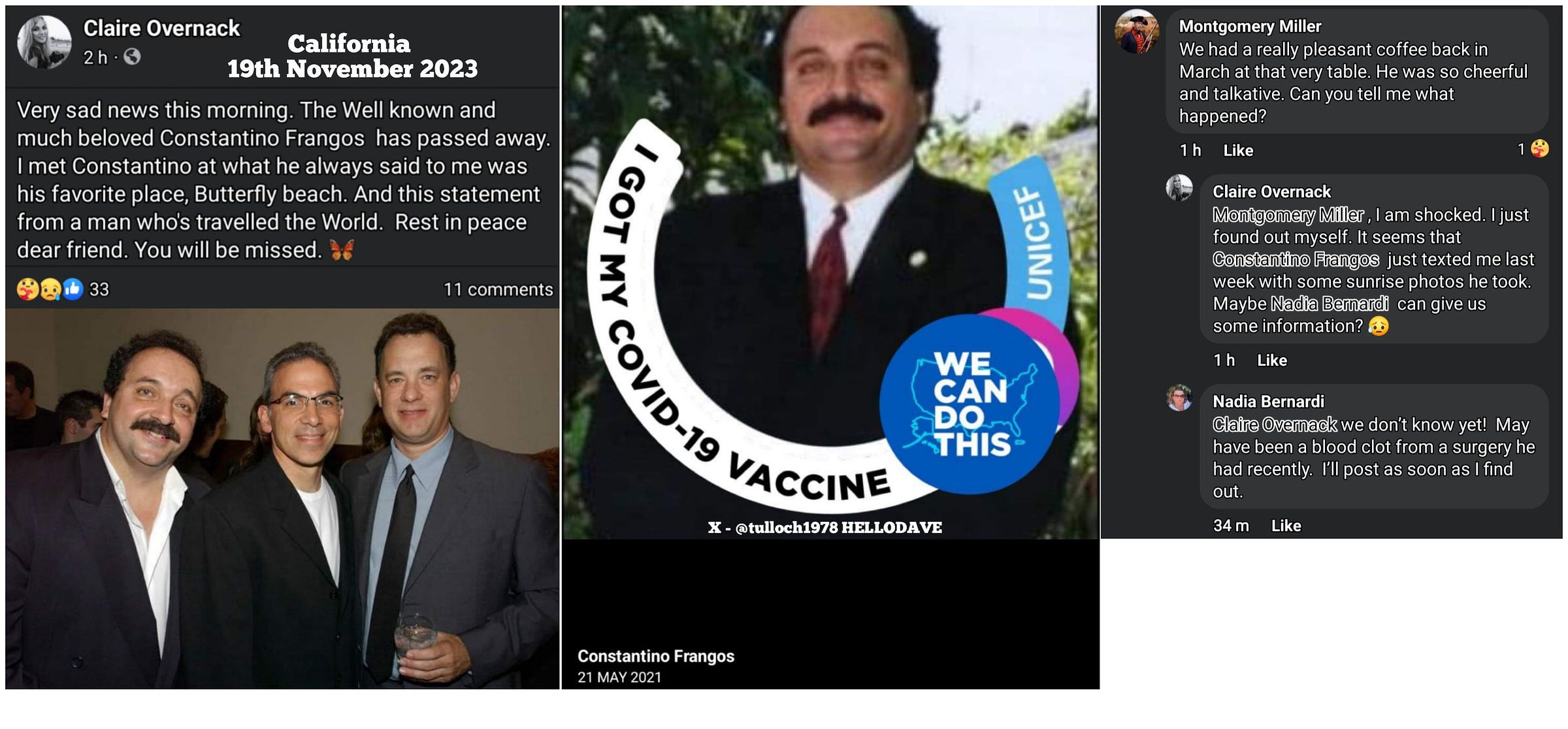
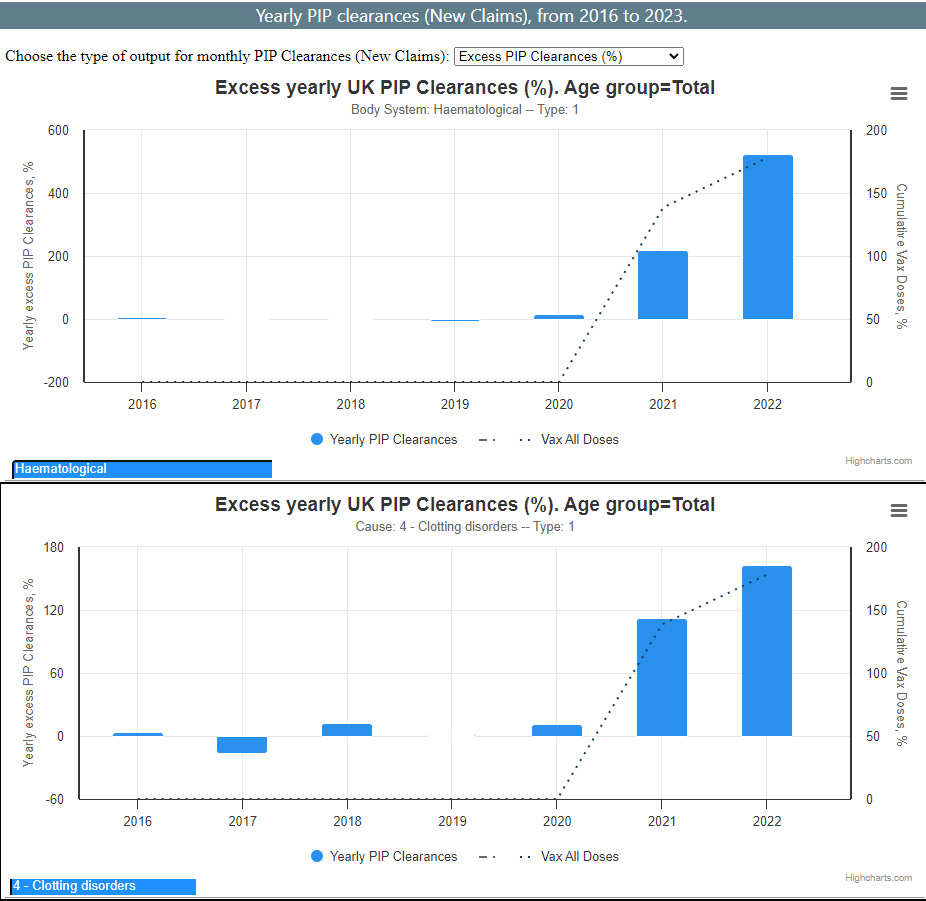
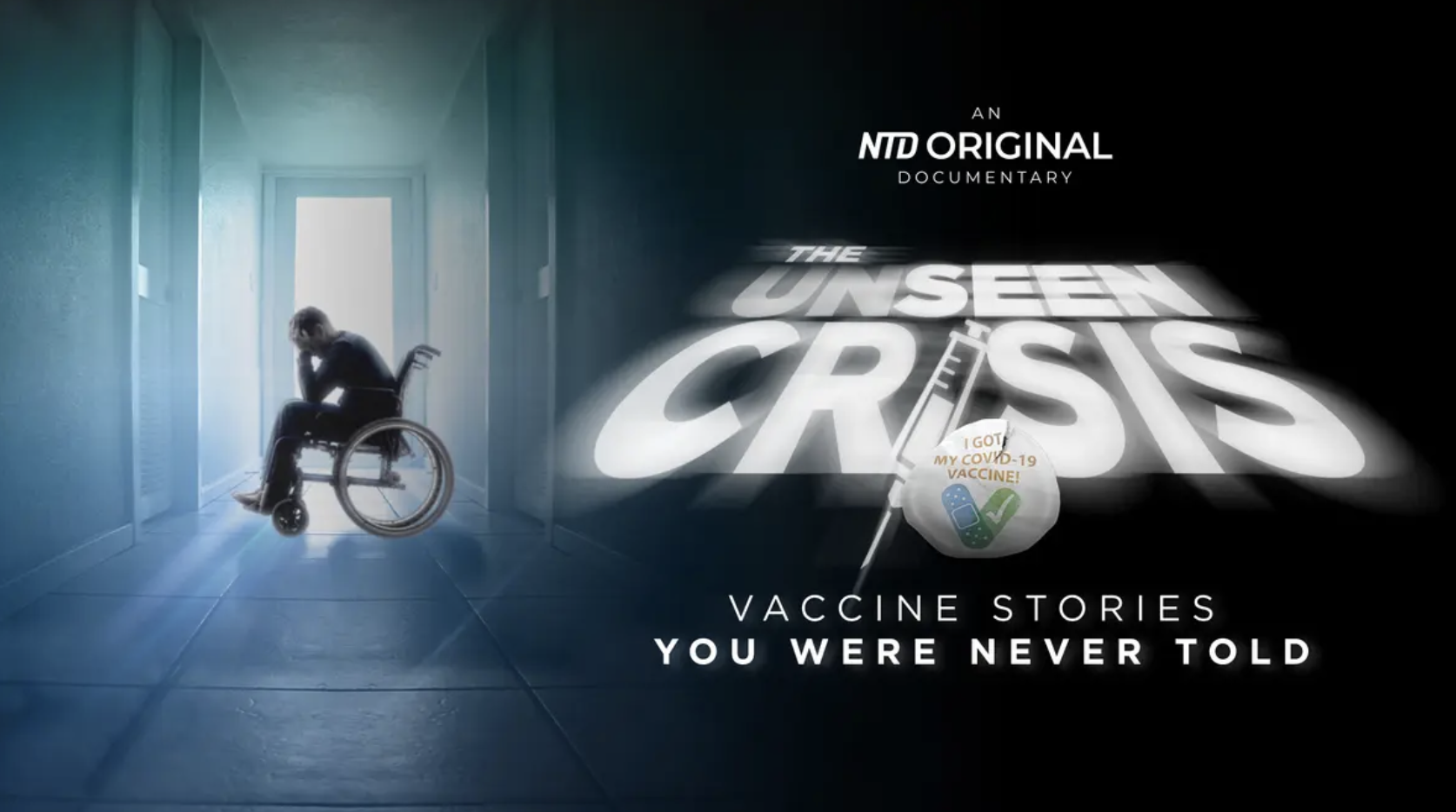
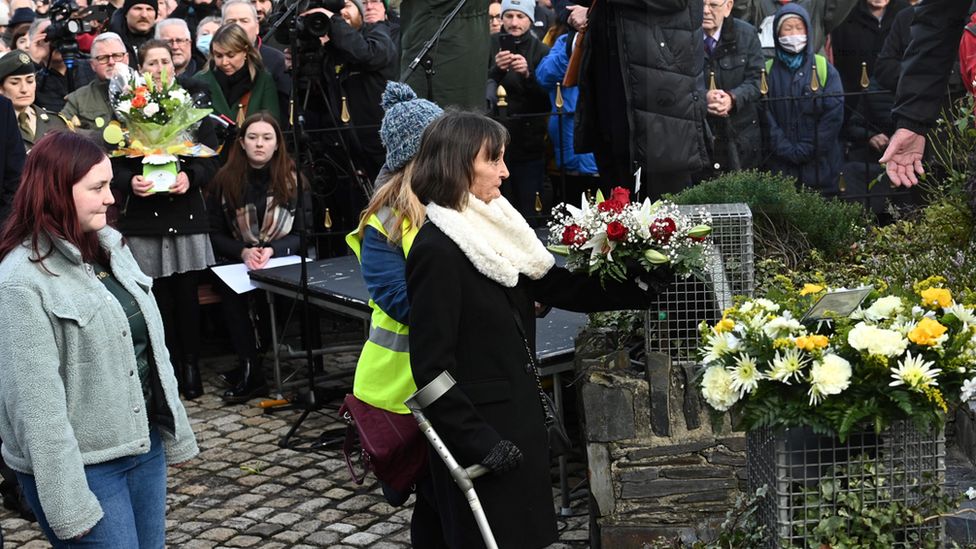
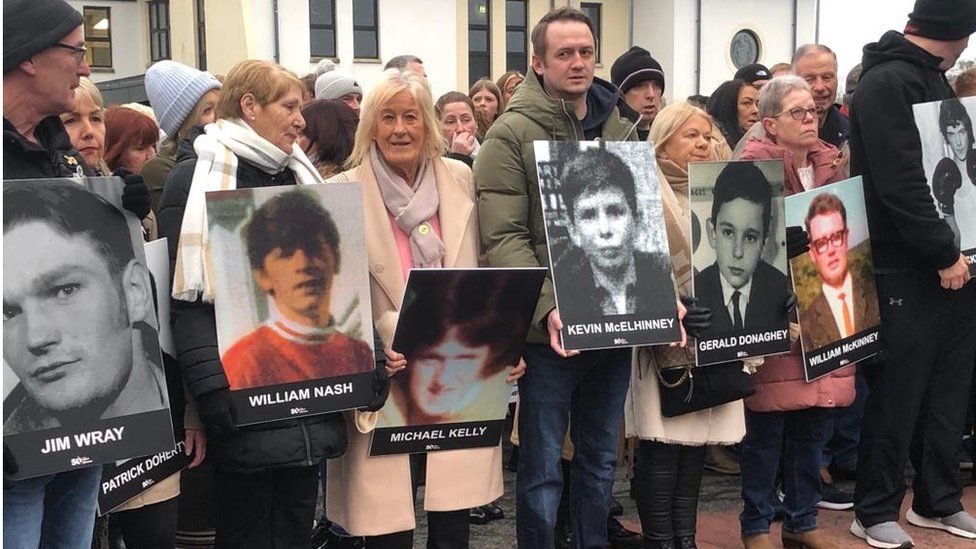

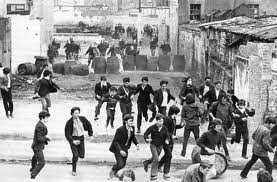
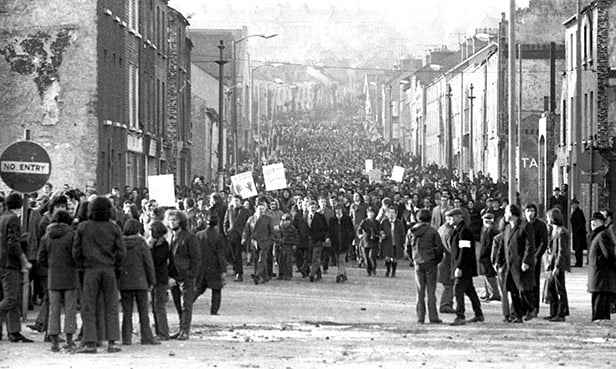
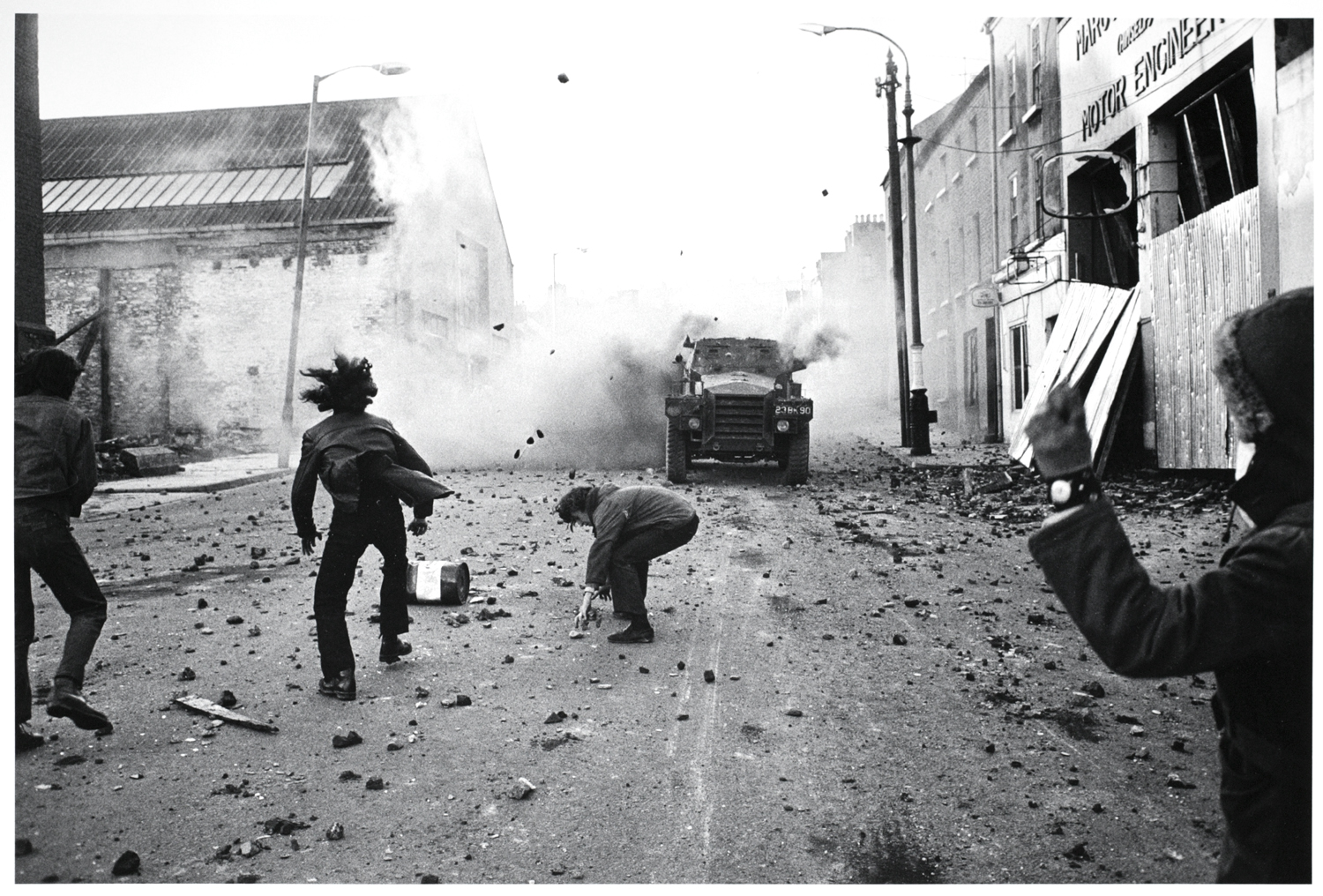

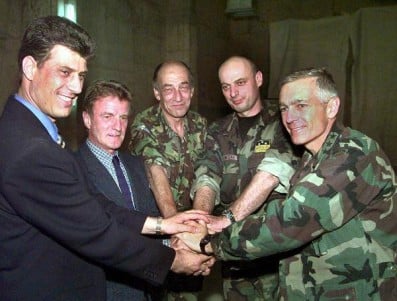
 Rethinking Srebrenica
Rethinking Srebrenica